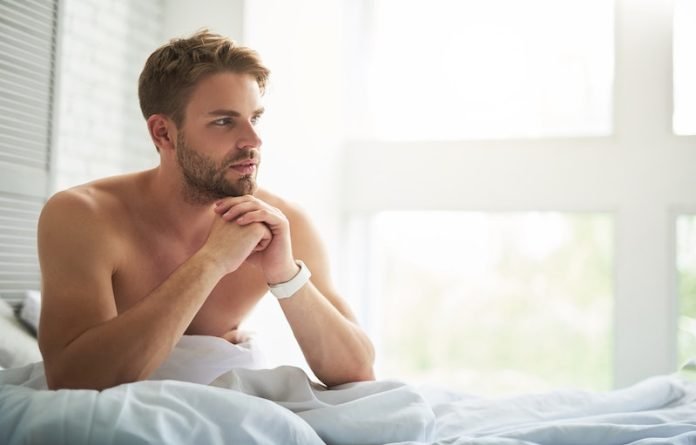
Good sleep and circadian health are interdependent and can impact our physical and mental well-being.
But, around 62% of adults worldwide say they don’t sleep well. And more than 40% say their sleep has gotten worse in the past five years.
Environmental factors are one cause behind these sleep and circadian rhythm disturbances.
Matt Jones, a Sleep Consultant at Wellcome and a Professor of Neuroscience at the University of Bristol, U.K., says:
“Almost every aspect of our physical and mental worlds has the potential to alter or impair the timing, consistency and quality of our sleep and circadian systems; and vice versa.
But how these factors affect people can vary, with age, underlying biological vulnerabilities and social and cultural contexts all playing a part.
Furthermore, studies show that what happens in our wider environment, such as a global pandemic or an escalating climate crisis, can also heighten sleep problems.
How does sleep affect mental health?
Disturbances in sleep and circadian rhythms have been linked with almost every category of mental disorder—including anxiety, depression, and psychosis.
These disturbances can predict the onset of mental disorders and serve as one of the earliest signs of relapse.
Veronica, who has had first-hand experiences of sleep disturbances, says:
“From a subjective perspective, poor sleep seems to negatively affect the way we process things, our body’s regulation and interoception, which in turn worsens our mental health.
“Sleep challenges can themselves be a source of worry and stress for the person experiencing them which may cause anxious and depressed feelings.”
Emerging evidence suggests treating sleep disturbances can alleviate the symptoms of mental disorders, and vice versa.
For example, studies show that cognitive behavioral therapy for insomnia (CBT-I)—an intervention to help people sleep better—can also improve symptoms of mental disorders.
CBT-I has multiple components, including educational strategies like how to practice good sleep hygiene, cognitive strategies like how to control worry, and behavioral strategies like stimulus control and relaxation techniques.
What is sleep hygiene?
Sleep hygiene involves creating a bedroom environment and practicing behaviors that are believed to promote better sleep, such as:
getting exposure to daylight
having a fixed wake-up time
avoiding caffeine in the afternoon and avoiding or reducing alcohol consumption
avoiding blue light from your electronic devices
exercising a few times a week
using ear plugs to block out noise
using black-out curtains or an eye mask to block out light
While sleep hygiene won’t always resolve sleeping problems, it has been shown to benefit sleep quality and symptoms of mental disorders.
One study involving college students in the United States found that interventions targeting the improvement of sleep hygiene and sleep quality may positively affect student well-being and mental health.
However, when it comes to best practices for sleep hygiene, Matt says, “we should avoid being too prescriptive.” Individuals should tailor their sleep hygiene practices to their needs.
“One of the great things about sleep—and one of the challenges behind measuring and modulating sleep—is that it’s a very personal thing,” he continues.
“For example, I like a pitch-black bedroom whereas my wife prefers some light. I think one of the most important habits is to relax into enjoying sleep’s possibilities.
Unfortunately, that’s far easier said than done for many people. But if you worry about sleep too much, it will elude you. Don’t obsess about perfecting your sleep—but good sleep is part of a healthy, happy life.”
For Veronica, the most helpful practices are “reducing or eliminating screen time at least an hour before sleeping, dedicating your sleeping space to be for just that and regulating temperature and light before bedtime.”
“A consistent routine may eventually become second nature and ensures we are sleeping for enough hours, maximizing rapid eye movement (REM) sleep and allowing our minds and bodies to rejuvenate,” she says.
“Although we cannot have total control over all the factors that may affect our mental health, we can work on what we can to help provide the most protection.”
How can we improve sleep and mental health interventions?
Apart from CBT-I and good sleep hygiene, there is a lack of interventions for sleep and mental health.
And while there is growing evidence of the links between environment, sleep, circadian rhythms, and mental disorders, there are significant knowledge gaps about why and how they are related.
To do that, we need more global and diverse data. Matt says: “Sleep matters to everyone. Yet most research to date has been undertaken in higher income countries, adults and uniform cultural and ethnic populations.”
We also need to involve more expertise from people with lived experience of mental health. Veronica says:
“People with lived experience can provide unique insights that might be otherwise overlooked when approaching sleep from a purely theoretical perspective.
They significantly enrich the research process through their diverse understanding of what works and what doesn’t, the tangible technical skill sets and expertise they hold and their advocacy for the protection and safeguarding of those who this work is aimed at helping.”
Source: Wellcome Trust.
If you care about sleep, please read studies about drugs that can treat sleep loss and insomnia, and Restless sleep may be an early sign of Parkinson’s disease.
For more information about sleep, please see recent studies about exercise that can help you sleep better, and results showing that 7 hours of sleep is best for people in middle and old age.



